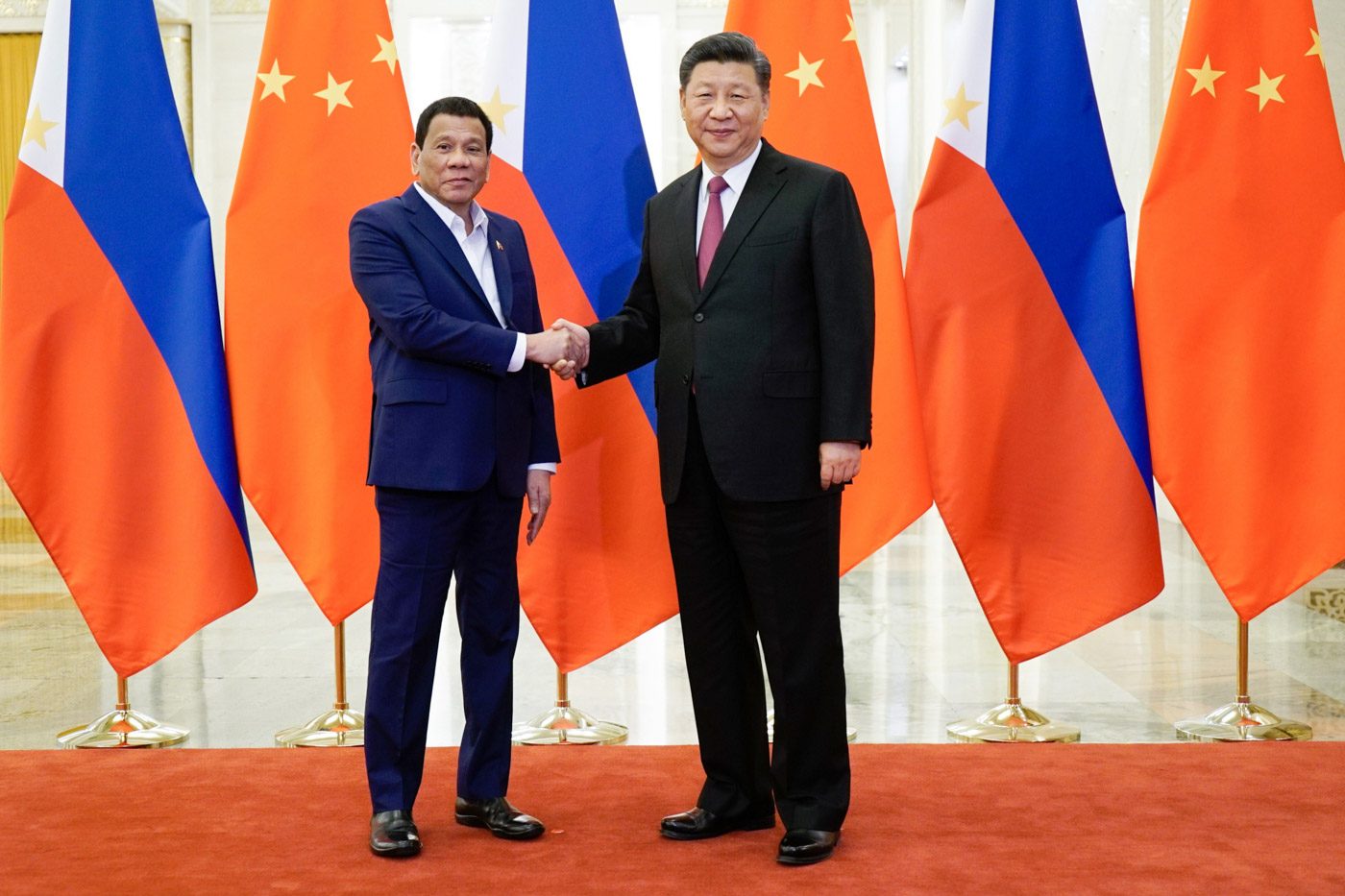SUMMARY
This is AI generated summarization, which may have errors. For context, always refer to the full article.

MANILA, Philippines – Reeling from criticism against President Rodrigo Duterte’s remarks that he can’t stop China from fishing in Philippine waters, Malacañang proffered a new argument in defense of the Chief Executive.
The line goes: Duterte cannot keep Chinese fishermen out of the Philippines’ Exclusive Economic Zone because doing so would compromise his capability to protect Filipino lives.
It’s an extension of Duterte’s claim that if he pushes back on China’s moves in the West Philippine Sea too aggressively, the Asian Giant will wage war, which would lead to deaths of Filipinos.
This new Palace reasoning came about after critics pointed to Duterte’s duty to uphold the 1987 Constitution’s provision that marine wealth in the West Philippine Sea should be reserved for Filipinos. (Section 2, Article XII: The State shall protect the nation’s marine wealth in its archipelagic waters, territorial sea, and exclusive economic zone, and reserve its use and enjoyment exclusively to Filipino citizens.)
Duterte poo-pooed this provision, calling it for “the thoughtless and senseless.” This fuelled more criticism that he can be impeached for violating the Constitution, the supreme law of the land.
To protect the President’s image, Panelo called forth another provision in the Constitution which he said trumps the EEZ provision. Panelo said Duterte is implementing this provision, thus he can’t be accused of violating the Constitution.
This provision, found in Section 4, Article II, reads: “The prime duty of the Government is to serve and protect the people.”
The EEZ provision (Section 2, Article 12), Panelo said on Tuesday, July 2, “should be read in relation to [the] primordial duty of the President to serve and to protect the Filipino people.”
“If you go over the Constitution, most of the provisions, if not all, relative to the protection of the State and its people emanate from that. That is the basic premise,” he added.
In the “hierarchy of rights,” the spokesman said, “the right to life takes precedence over the right to property.”
Is the Palace right in making such an argument? Constitutional law professor Tony La Viña doesn’t think so.
Panelo, he said, has so far failed to prove that the two constitutional provisions – duty to serve and protect Filipinos and duty to maintain exclusive use of EEZ – are in conflict with one another in the case of China and the West Philippine Sea dispute.
“I disagree with Secretary Panelo. As a teacher and scholar of constitutional law, we follow the general principle that where there is no conflict, all the constitutional provisions must be given effect and complied with,” La Viña told Rappler on Wednesday.
Far from being in conflict, La Viña said the “duty to serve and protect” provision includes the duty to protect the EEZ for exclusive use of Filipinos.
“In fact, the duty in Section 4 includes the duty to defend national territory and to reserve the resources in the EEZ for Filipinos,” he said.
La Viña said framers of the Constitution knew that keeping marine resources for the enjoyment of Filipinos is closely tied with protecting Filipino lives.
“The context there is depletion of fisheries and degradation of marine environment. Our food security is at stake as well as our energy security. Section 4 demands that this exclusivity be pursued,” the law expert said.
While Duterte keeps raising the specter of war, La Viña said war is not the only way to assert Philippine rights over its EEZ.
“As to the argument that the President is trying to avoid war, it has been said many times that being steadfast in the defense of our territory and EEZ will not result into war as we have a range of diplomatic options,” La Viña said.
Some of these options include gathering international support from unilateral bodies like the United Nations for the historic Hague ruling, or invoking the Mutual Defense Treaty with the United States.(READ: 5 ways Duterte can defend Scarborough without going to war) – Rappler.com
Add a comment
How does this make you feel?
There are no comments yet. Add your comment to start the conversation.